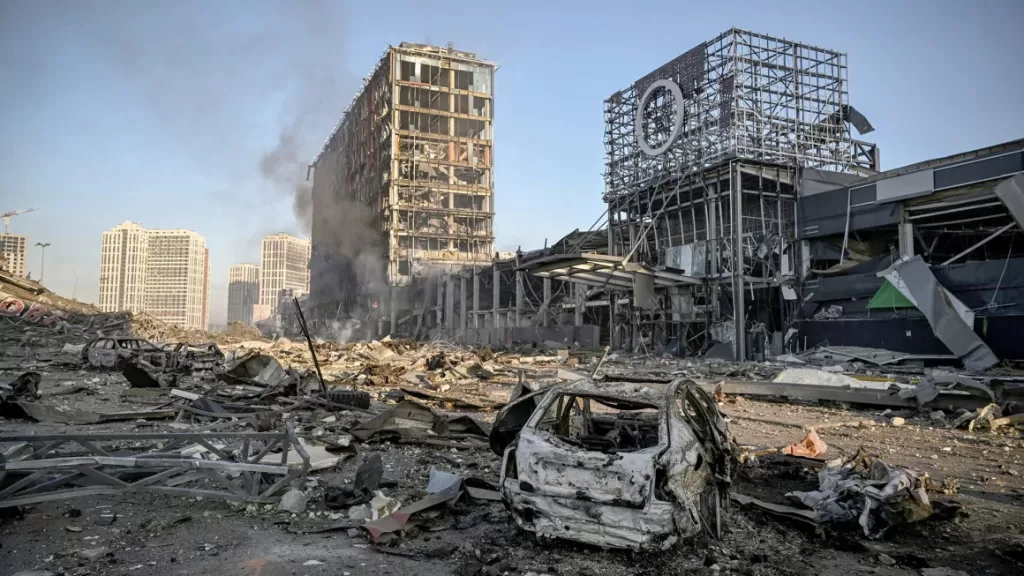Russia’s frozen assets are generating billions. The EU is getting ready to send them to Ukraine
Russian assets frozen in European accounts are generating billions of dollars in interest payments that could be diverted to help repair Ukraine’s war-torn economy — and the European Union just took a step closer to doing that. After Russia’s full-scale invasion of Ukraine in February 2022, Western countries froze nearly half of Moscow’s foreign reserves — some €300 billion ($327 billion). Around €200 billion ($218 billion) sits in the European Union — mostly at Euroclear, a financial institution that keeps assets safe for banks, exchanges and investors. EU leaders agreed a crucial $50 billion funding package for Ukraine on Thursday and came closer to finalizing a plan to use the profits piling up in Euroclear’s accounts. In a statement issued at the end of a summit, EU leaders said “potential revenues could be generated … concerning the use of extraordinary revenues held by private entities stemming directly from the immobilised Central Bank of Russia assets.” Belgium-based Euroclear disclosed Thursday that it has earned €5.2 billion ($5.6 billion) in interest on income generated by sanctioned Russian assets since they were frozen by EU and Group of Seven countries in 2022. “The number of sanctions and countersanctions that have been introduced since February 2022 are unprecedented and continue to have a significant impact on the daily operations of Euroclear,” the group said in a statement. The European Union and its allies are determined to make Russia foot part of the colossal bill for rebuilding Ukraine — estimated by the World Bank a year ago at $411 billion over the next decade. One proposal put forward by the European Commission would involve using a special levy to collect the windfall interest income, which would then be paid into the EU budget for the reconstruction of Ukraine. RELATED ARTICLEEU agrees $50B funding deal for Ukraine at pivotal time in the war That plan has been delayed by legal and financial concerns, with some EU member states and the European Central Bank worried that even carefully targeted measures could fall foul of international law and shake confidence in the euro as the world’s second biggest reserve currency. The EU has been at pains to contrast the illegality of Russia’s invasion with its own strict adherence to the rule of law. EU member countries have now agreed in principle to tap this windfall interest income, although the details of how this will be done practically must still be ironed out, an EU diplomat told CNN. Lawyers are working on the text of the agreement before returning it to EU member states for final approval. In its earnings statement, Euroclear — which settles cross-border trades and safeguards more than $40 trillion in assets — said it was focused on “minimising potential legal and operational risks” that may arise from proposals by EU officials to hand the money to Ukraine. Euroclear said additional administrative costs relating to the sanctions cost it €62 million ($67 million) last year, “with considerable senior management and board focus on the topic.” It added that cash on its balance sheet soared €38 billion ($41 billion) year-on-year to €162 billion ($175 billion), boosted by payments associated with frozen Russian assets, including bonds. These payments include, for example, interest paid on bonds, known as coupons, or the proceeds generated by securities that mature and are reinvested. Ordinarily, these payments would have been made to Russian bank accounts, but they have been blocked by the sanctions and are generating vast amounts of interest — even more so given the recent spate of rate hikes. Euroclear, for its part, is embroiled in several legal proceedings pertaining to the sanctions — almost exclusively in Russian courts — as claimants seek to access the assets blocked in its books. The company said it continues to retain profits related to these assets “until further guidance is provided on the distribution or management of such profits.” Source:https://edition.cnn.com/2024/02/01/business/frozen-russian-assets-ukraine/index.html


















